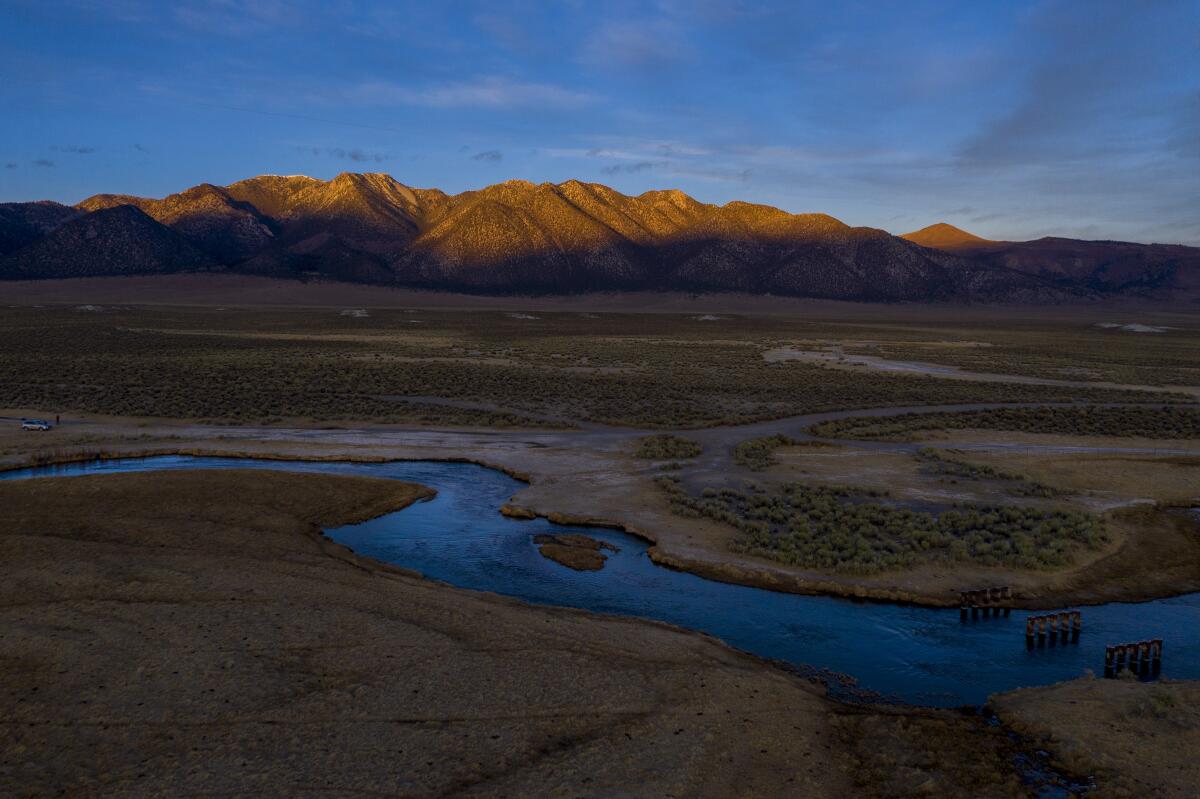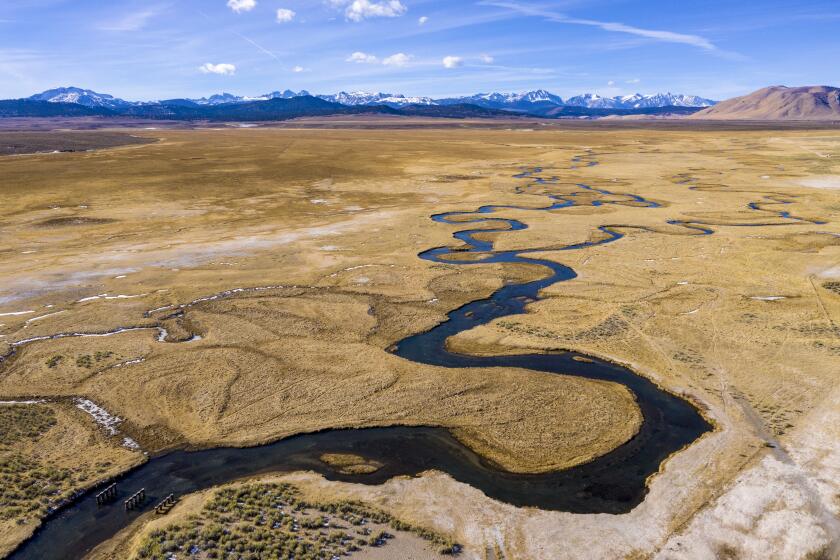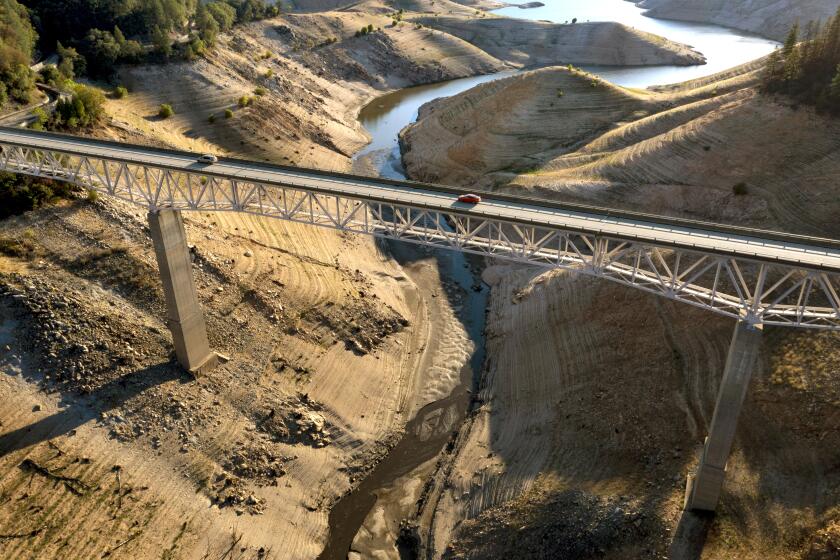L.A. wins water battle with Mono County amid worsening drought

- Share via
A state appellate court has reversed a judge’s ruling that would have required the Los Angeles Department of Water and Power to conduct an environmental review before making annual decisions about deliveries of water on pastureland it owns east of Yosemite.
The city agency on Thursday said the previous ruling had “set an impossible standard” as it faces the complex challenges of servicing ratepayers and meeting environmental requirements in a time of drought, dwindling snowpack and changing water availability.
The appellate court’s reversal ensures that the agency “will continue to have the flexibility required to balance the state’s strained water resources with the needs of people and the environment,” said Anselmo Collins, the LADWP’s senior assistant general manager of water systems.
“Every year, LADWP takes great care to responsibly adapt its water operations, to respond to changes in weather, environmental demands, storage capacity, annual runoff, water supply, needs of customers and more,” he said.
A lawsuit filed against the agency by Mono County and the Sierra Club was triggered by new leases the agency proposed in 2018 indicating that ranchers on its 6,100 acres in Long Valley should expect little to no irrigation water when they renew, according to court documents.
Ruling has significant implications for water agencies statewide facing the complex challenges of servicing ratepayers and meeting environmental requirements.
The plaintiffs accused the agency of trying to implement the new water policies while 2010 leases were still in effect and before it had studied their impacts on habitat and ranching operations, as required by the California Environmental Quality Act.
The California Department of Fish and Wildlife also entered the fray on behalf of Mono County, out of concern for the survival of one of the most legally contested birds in America, a genetically distinct clan of sage grouse unique to the California-Nevada border.
The agency, however, argued that its 2018 water allocation for grazing was authorized under terms of the 2010 leases still governing the scenic grasslands, about 300 miles north of Los Angeles.
In a June 30 opinion that dismayed environmentalists and ranchers, the three-judge panel agreed with Los Angeles and reversed the trial court judge’s ruling.
The water rights in the area, it added, belong to Los Angeles, and the availability of an annual allotment for irrigation “is highly dependent upon water availability and weather conditions: due to this, delivery of irrigation water may be reduced in dry years.”
As almond growers use increasingly scarce and expensive water to irrigate this year’s crop, over a billion pounds of nuts remain stranded in port.
Beyond that, it concluded that the county’s lawsuit was filed after the statute of limitations had expired.
The plaintiffs suggested that the reversal left them with a “pyrrhic victory” because it affirmed that the LADWP cannot change leases for grazing lands without first conducting an environmental review.
“We’re better off now than we were in 2018,” said Stacey Simon, an attorney representing Mono County.
The DWP has for seven decades provided seven lessees in Mono County about 5 acre-feet of water per acre per year, which made their pastures nutritious through the summer and added luster to the area’s hiking, biking and angling hotspots. (An acre-foot of water equals about 326,000 gallons, more than enough to supply two or three households for a year.)
The appellate court concluded that the agency has a right to reduce the annual water allotment for ranching so long as it doesn’t “end all water deliveries under the 2010 leases.”
On Thursday, the agency said it continues to provide water to ranchers in Mono County based on annual evaluations. Since 2016, lessees have received more than 120,000 acre-feet of water.
Parts of California have received only two-thirds or less of normal rainfall over the last three seasons.
It also said it is preparing to begin an environmental review of the new lease proposal. No changes will be made to the existing leases, DWP said, until the review is complete.
Regardless of the appellate court decision, Collins said, “our operations in Mono County will continue to protect the unique environment that serves as habitat for the Bi-state sage grouse.”
Los Angeles acquired the land in the early 1900s, when city agents posed as ranchers and farmers to buy water rights in Mono and nearby Inyo counties with a goal of building an aqueduct to meet the needs of the growing metropolis to the south.
Water wars have defined the region since.
Bob Gardner, chair of the Mono County Board of Supervisors, said Mono County is prepared “to take further legal action to protect its valuable natural and economic resources.”










